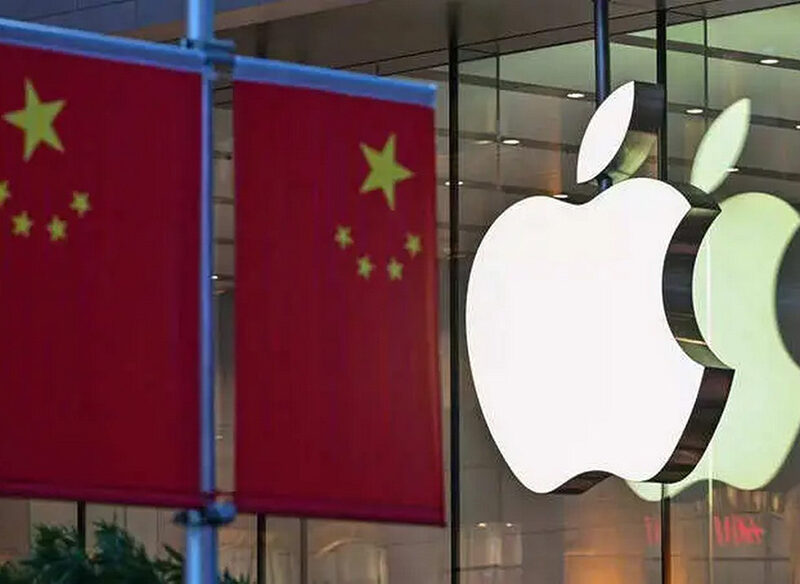The once-promising landscape of opportunity in China for American corporations is undergoing a significant transformation, presenting formidable challenges for tech giants like Apple and Tesla.

The Changing Dynamics of Doing Business in China
After years of robust growth, US tech behemoths are encountering substantial setbacks in China’s market. The rise of nationalist sentiments endorsed by Beijing has led to a shift in attitudes towards Western businesses, coupled with the emergence of competitive domestic alternatives. Consequently, a fierce competition to captivate Chinese consumers has ensued, contributing to a challenging business environment for American companies.
Tech Titans Grappling with Decline
The struggle for tech dominance exemplifies the hurdles faced by American enterprises in China.

Apple’s Struggle with iPhone Sales
Apple has witnessed a notable decline in iPhone sales within the Chinese market. Data from Counterpoint Research indicates a staggering 24% drop in sales during the initial six weeks of the year. The ban imposed by the Chinese government on the use of iPhones by officials has compounded Apple’s challenges, leading to a significant devaluation of the company’s worth. Concurrently, the introduction of Huawei’s Mate 60 Pro, boasting locally produced 5G technology, has posed formidable competition, undermining the appeal of Apple products among Chinese consumers.
Tesla’s Downturn in Shipments
Tesla, too, has faced setbacks, experiencing a substantial decrease in shipments from its Shanghai gigafactory. With shipments plunging by 16% compared to January and 19% from the previous year, Tesla confronts the repercussions of a broader slowdown in the electric vehicle (EV) market, exacerbated by the Lunar New Year festivities.
Evolving Market Dynamics and Technological Competition
The declining fortunes of American corporations in China reflect a broader paradigm shift in the global tech arena.

Rise of Chinese Tech Competitors
Chinese companies are no longer reliant on replicating Western innovations but are pioneering their own breakthroughs, as evidenced by Huawei’s Mate 60 Pro. Moreover, local EV manufacturers like BYD are gaining traction with competitively priced vehicles, posing a formidable challenge to Tesla’s dominance in the market.
Beijing’s Emphasis on Technological Advancement
Premier Li Qiang’s articulation of China’s ambitious 5% annual growth target underscores the pivotal role of technology in driving economic progress. Beijing’s proactive stance in nurturing the domestic tech sector, coupled with initiatives like Document 79, reflects a concerted effort to bolster indigenous innovation and diminish reliance on foreign entities.
Strategic Implications for Western Companies
As China intensifies efforts to bolster its domestic tech ecosystem, Western companies face a critical juncture in navigating this evolving landscape. The imperative to adapt to shifting market dynamics while maintaining a foothold in China remains paramount, albeit amid heightened competition and regulatory scrutiny.
Charting a Path Forward
The response of Western companies to China’s evolving business landscape will undoubtedly shape future dynamics. Despite the formidable challenges, China’s market remains too lucrative to ignore, necessitating a recalibration of business strategies to align with the emerging paradigm.
In conclusion, as American corporations grapple with the realities of doing business in China, resilience, adaptability, and strategic foresight will be indispensable in navigating the complexities of this evolving market landscape.













Comments